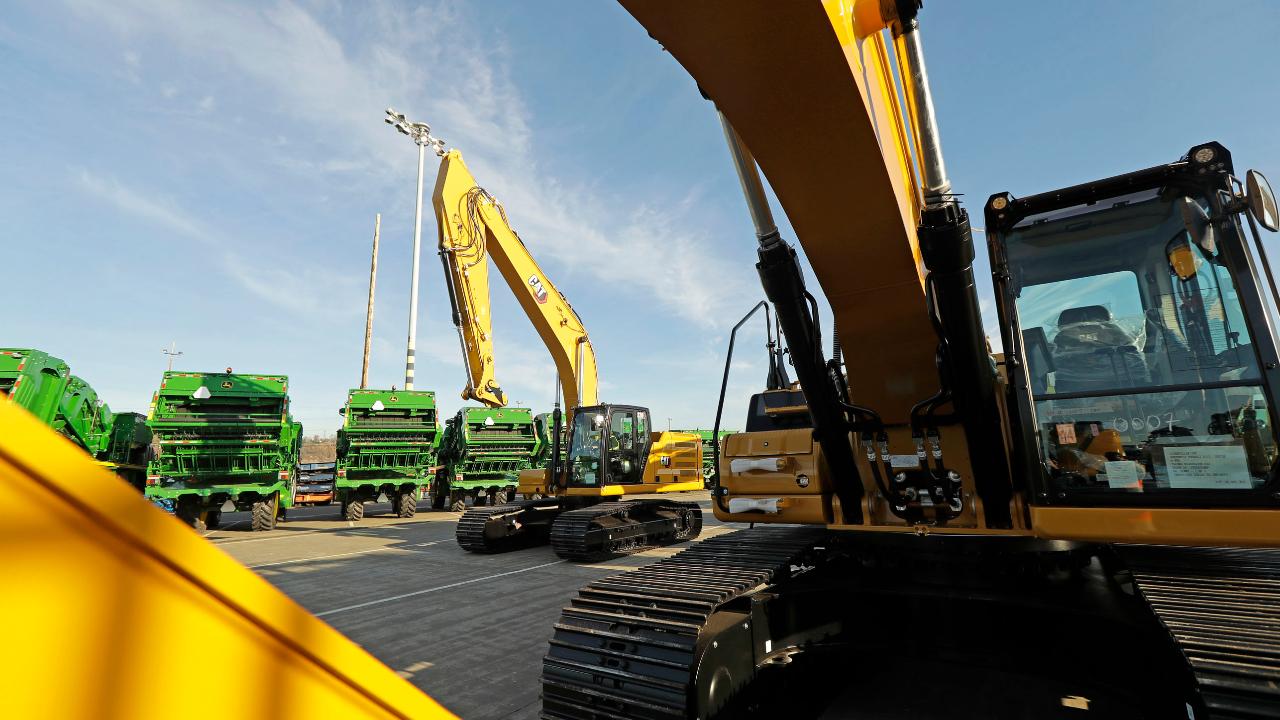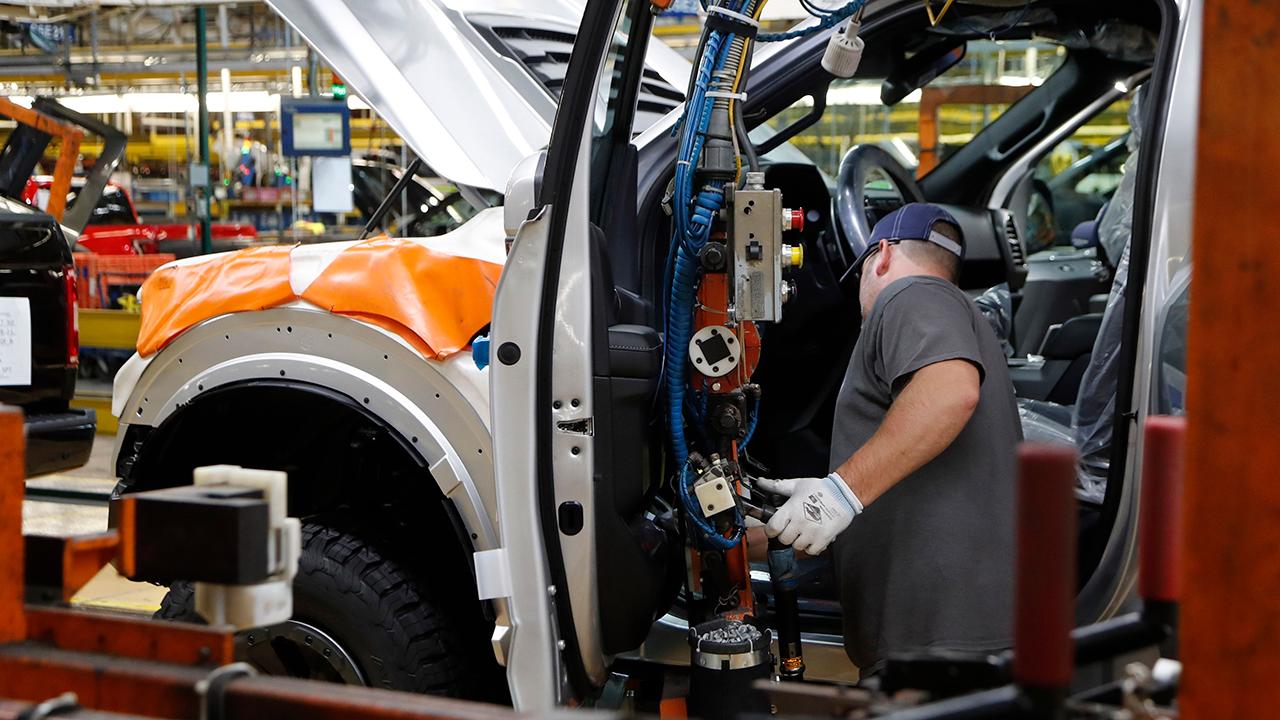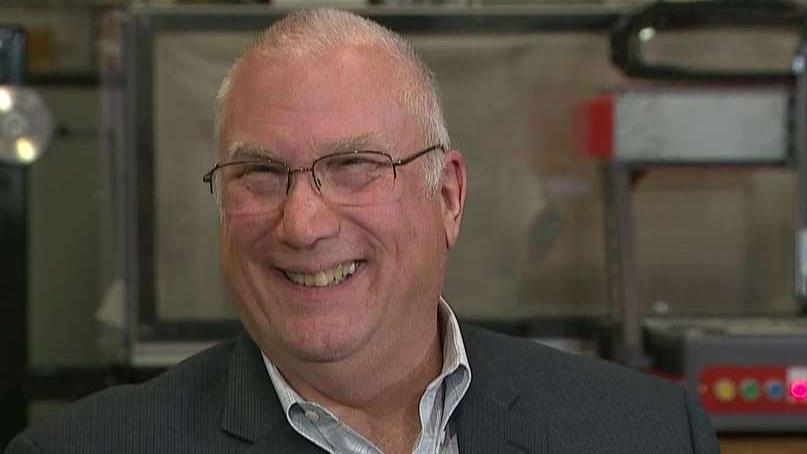Allegion CEO Dave Petratis: How to keep US manufacturing from falling behind
As the CEO of a global manufacturing company with a healthy presence in the U.S., I have strong feelings about the role of the manufacturing sector, both in shaping our economy and the lives of the thousands of people we employ. Simply put, a strong economy must have manufacturing. Our future success depends on it.
I’m very pleased to see the intensifying national conversation about the critical role manufacturing plays in our economy and how we can better support it as a country. Before we decide that the solution is a Washington-directed industrial policy, a federal agency responsible for manufacturing or more tariffs, I think it’s important to truly understand what’s happening in the private sector and what the future of manufacturing work looks like.
Over the next decade, according to Deloitte, 4.6 million manufacturing jobs will likely be needed in the U.S. alone, and 2.4 million are expected to go unfilled due to the skills gap.
Over the next decade, according to Deloitte, 4.6 million manufacturing jobs will likely be needed in the U.S. alone, and 2.4 million are expected to go unfilled due to the skills gap.
At Allegion, we invest in our workforce and its technology. To be clear, it’s both – not either/or. And if you’re not starting there, little else matters.
If you walk the floor at our factory in Princeton, Illinois -- or one of the many U.S. manufacturing facilities -- things are radically different than 10 years ago. You’ll see pieces of equipment that rival a Ferrari in value. But we need people to operate them. That requires us to reskill and upskill current talent as well as attract new talent with new skills.
GET FOX BUSINESS ON THE GO BY CLICKING HERE
We owe it to our young people to better prepare them to come into the workforce, so they can excel, no matter if they walk into a university, a technical school or straight into a modern manufacturing facility. There are incredible career opportunities in manufacturing requiring a variety of expertise, from production and distribution to engineering, robotics, embedded intelligence and environmental health and safety.
This is, to some extent, a responsibility of the manufacturing industry to communicate. However, we can use help from leaders at all levels of government and in our communities to advance this conversation about the changes and opportunities in the workforce.
Focus not just on getting more kids to attend four-year universities, but also on helping them find career paths that fit their needs, skills and interests. Work with the private sector to help us create the kind of internship and training programs that will prepare more people for the very good jobs that will be available in modern manufacturing. Reform education to serve broader needs and move away from one-size-fits-all.
CLICK HERE TO READ MORE ON FOX BUSINESS
We must close the skills gaps of young people when they come out of high school, or the U.S. will fall behind. I spend a great deal of time in Europe where we have manufacturing plants – and, for example, some students in Germany start to pursue either a technical path or a university path around the age of 14 or 15. And both growth choices are valued.
This isn’t about limiting or pigeonholing people but getting them thinking about what they’re interested in and better preparing them for new career paths.
In the U.S., we need to do a better job helping young people understand that manufacturing offers great career paths. The perception remains, if you don't go to college and get a bachelor's degree, you've failed. That’s wrong, and it’s unfair to large numbers of young people. Manufacturing jobs are just as valuable (and in some cases more rewarding) than others attained by way of a general degree from a four-year institution.
We should continue to emphasize STEM education in K-12 as well as the value of two-year and technical education beyond high school. Let’s help more young people understand that a four-year degree is far from the only path to interesting work that pays well.
I also think it’s easy to lose sight of the interesting work and critical thinking that comes with the manufacturing revolution. Gone are the days where a job in manufacturing only meant pulling a lever to run a machine or fastening two parts together. Industrial IoT solutions, along with advancements in automation and technology, have really put the emphasis on problem solving and managing an operation.
Workers today need to be comfortable with not only computers and technology, but the outputs of these devices and how to interpret them. Coding and data analysis are more commonplace on the shop floor. Having the skills to examine data and make thoughtful, rational decisions is crucial. And support personnel need new skills like software management and knowledge of test optimization tools.
Employees who have manufacturing technology skills are incredibly valuable and compensated accordingly. A recent Economic Policy Institute paper notes manufacturing workers earn 13 percent more in hourly compensation (including both wages and benefits) than comparable workers in the rest of the private sector. Other studies point to similar compensation advantages.
We often say at Allegion, “This isn’t your grandfather’s manufacturing.” Honestly, though, it’s probably more accurate to say, “This isn’t your parent’s or even your older sibling’s manufacturing.”
There’s incredible innovation happening; it’s not all about coastal tech companies. Future success likely won’t be determined by new government agencies or tariffs but by continuing to drive wide-scale awareness about the modern global manufacturing environment and preparing our future workforce to take advantage of the opportunities in front of us.
Dave Petratis is the chairman and CEO of Allegion.
























